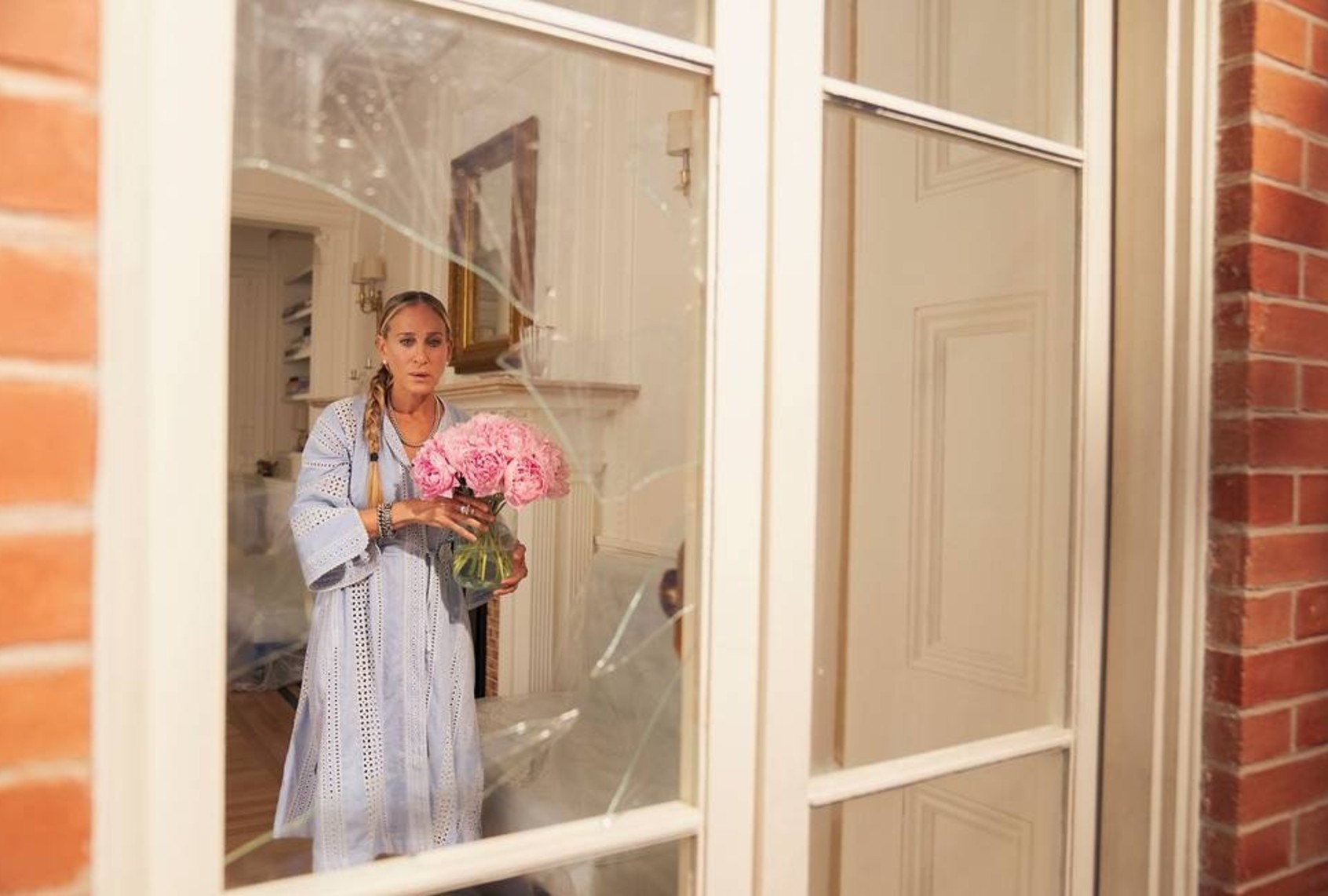The latest season of “And Just Like That” raises questions about the portrayal of single life through its iconic character, Carrie Bradshaw. Despite the show’s focus on midlife and independence, Carrie, played by Sarah Jessica Parker, continues to be tethered to romantic entanglements, leaving many viewers wondering why the writers resist allowing her to embrace a period of solitude.
The narrative begins with Carrie reflecting on her new novel, set in 1846, during a midnight moment of inspiration in her Gramercy Park apartment. This serene backdrop is soon disrupted by a rat infestation, prompting her to hire a landscaper named Adam, played by Logan Marshall-Green. As Carrie navigates her chaotic life in New York, she remains entrenched in her complicated relationship with Aidan, portrayed by John Corbett. Despite being wealthy and capable of enjoying life independently, Carrie frequently finds herself caught between past romances and the pressures of her social circle.
The show’s structure follows a familiar formula from the original “Sex and the City,” where friendships and romantic pursuits intertwine. Characters like Charlotte and Miranda are now paired off, creating a contrasting dynamic with Carrie, who insists she is still with Aidan, even as their long-distance relationship remains fraught with complications. Aidan’s absence during critical moments raises questions about the nature of their bond, suggesting a reluctance by the writers to allow Carrie to explore life on her own terms.
Exploring Relationships and Independence
This season, the writers introduce Duncan, Carrie’s new downstairs neighbor, adding another layer to her romantic landscape. Duncan is characterized as a curmudgeonly British writer, creating an intriguing tension between the two. While their chemistry is palpable, the ongoing theme of Carrie’s dependency on male validation prevails. The show hints at a potential shift in Carrie’s romantic interests, yet the overarching narrative continues to reflect a reluctance to allow her to be single and self-sufficient.
The cultural context adds depth to this discussion. According to data from the National Center for Family & Marriage Research, as of 2021, 29.1 percent of U.S. adults aged 30-49 had never been married. Major cities like New York and Washington, D.C., lead this trend, suggesting that many women are thriving in singlehood. Yet, Carrie’s narrative does not align with this reality. Instead of showcasing the empowerment that comes with independence, the storyline leans on the familiar trope of romantic entanglement.
While the show continues to explore themes of friendship and support, it notably sidelines the complexities of being single in modern society. The character of Seema, portrayed by Sarita Choudhury, serves as a counterpoint to Carrie, emphasizing the pursuit of self-fulfillment without the need for a relationship. Seema’s independence contrasts sharply with Carrie’s dependency, prompting viewers to question the narrative choices made by the writers.
Audience Expectations and Future Directions
The ongoing tension between Carrie’s past relationships and her potential future with Duncan has stirred mixed reactions among audiences. While some viewers cheer for Carrie to find love, others hope for a storyline that embraces her independence. The show’s reliance on past romantic figures, like Aidan, undermines the development of a character who has historically been a symbol of female empowerment.
The dynamics of modern relationships, particularly as they relate to women’s experiences, are evolving. As highlighted by social media influencers, many women today prioritize their independence over traditional romantic pursuits. A viral TikTok by Eros Brousson emphasized that many women are content in their solo lives, a sentiment that resonates with the audience yet is largely absent from Carrie’s narrative.
Ultimately, “And Just Like That” has the opportunity to redefine Carrie’s journey. By allowing her to explore life independently, the show could reflect a broader range of experiences faced by women today. There is a growing audience that seeks narratives where women prioritize themselves over romantic relationships, and the potential for such a storyline remains tantalizingly within reach.
As new episodes continue to stream on HBO Max every Thursday, the hope remains that Carrie Bradshaw will embark on a journey of self-discovery, allowing her to grow beyond the confines of her past relationships. With evolving societal norms regarding love and independence, the next chapters of her story could prove to be not only relevant but also empowering for viewers around the globe.
